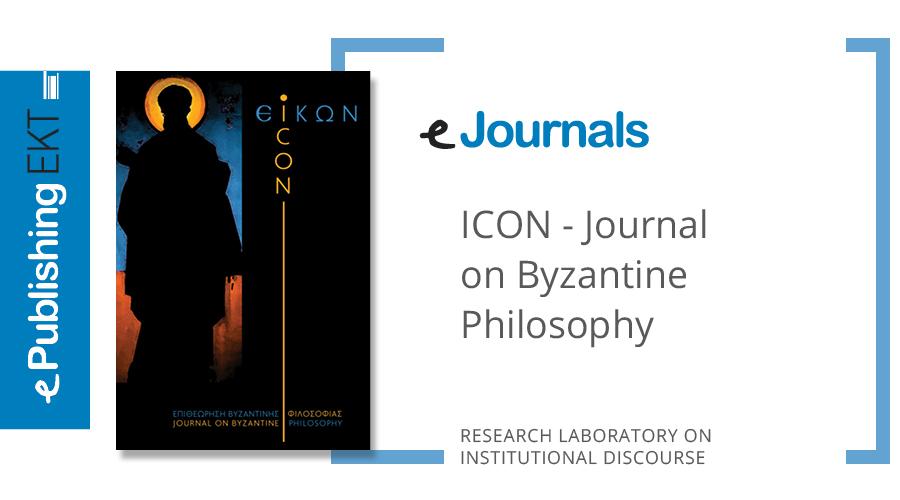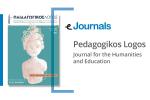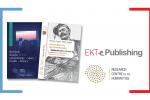
The National Documentation Centre (EKT) has launched a new publishing partnership for the electronic distribution of the scientific journal ‘ICON - Journal on Byzantine Philosophy’ published by the Research Laboratory on Institutional Discourse of the Department of Philosophy of the National and Kapodistrian University of Athens (UOA).
The scientific journal ‘ICON’ aims to promote research in the field of Byzantine Philosophy and its related disciplines (ontology, metaphysics, philosophical theology, philosophical psychology, epistemology, epistemology, aesthetics, etc.) both in terms of the history of philosophy as well as systematic philosophy. Particular importance is also given to philosophical expressions as forms of institutional discourse and the various institutions (law, theology, science) that more or less concern philosophy.
The journal publishes original articles in Greek, English and French twice a year, while all articles under publication are subject to anonymous evaluation by the scientific committee of the journal. In the preface of the first issue of the journal Giorgos Arambatzis, Associate Professor of Byzantine Philosophy and Director of Research Laboratory on Institutional Discourse, Department of Philosophy, UOA, states that though the journal series ‘EIKON / ICON’ focuses on the Byzantine period, its goal is not to be limited to that historical period alone, quite the opposite in fact.
Among other things, G. Arambatzis.also mentions that Byzantine Philosophy as a branch of the history of philosophy raises a number of issues, of which the history of rationality is not the least important. The contribution of the various trends of modern thought and theory to the work of the historians of philosophy should not be overlooked as it is decisive for the way we perceive historicity and our relationship with it and with the cultural structures that colour the long duration of various forms of culture.
The first issue of the journal that has just been published includes, in addition to the preface, six very interesting scientific articles.
Research Laboratory on Institutional Discourse
The Research Laboratory on Institutional Discourse was approved by the 3rd General Assembly of the Department of Philosophy, Pedagogy and Psychology, on 15/5/2018, following a proposal by Associate Professor Mr. Georgios Arabatzis who was elected Director of the Laborator. The object of the research and scientific activity of the Laboratory is the institutional, discursive practices throughout the time range of Greek history, from Antiquity and through Byzantium to modernity, with particular emphasis on the Byzantine period as crucial for the formation of institutional reason.
The term "discursive practices" refers to the points of convergence of private wills with public regulations and, in a broad sense, refers to the development of an ethic capable of regulating privacy according to the language and expression of institutions. Institutional reason thus appears to be a regulator of privacy and expressive normativity.
The Laboratory focuses its research on the formal theoretical texts of the relevant tradition but also on informal theoretical evidence such as e.g. legislative initiatives, curricula, manifestos, autobiographical documents, representations of the daily life of institutional discursive practices, theoretical confessions, visual documentation, etc., based on an analysis that will explore the relationship between philosophy and theoretical discourse with concrete discursive practices on the basis of historically situated scientific, linguistic and educational expressions.
The publishing partnership with EKT
As part of the co-operation between the two bodies, EKT provides the infrastructure for the electronic publication of the journal while the Research Laboratory on Institutional Discourse is responsible for the scientific supervision of the content. To date, the EKT eJournals platform hosts 52 high quality scientific journals and offers a single publishing environment and open access to reputable content, enhancing academic communication and research.
















